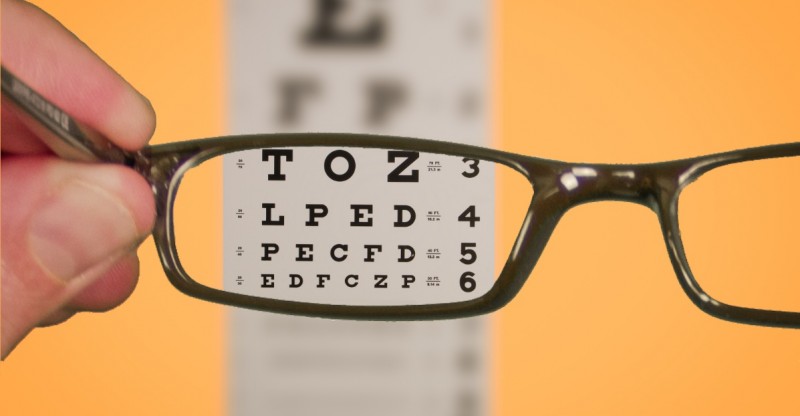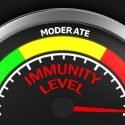12 Science-Backed Ways to Preserve Your Vision
There are many risks to eye health as we get older and it’s natural for our vision to change and as our bodies start to age and deteriorate.
Age-related decline is a natural change that all of us will inevitably undergo, especially aged 60 and beyond.
Some of the changes we will experience in later life, such as presbyopia, are entirely normal and do not indicate and hidden or serious problems.
But there is also a higher risk of eye disease when we reach a certain point in our lives.
Age-related macular degeneration (AMD) is the most common form of the macular disease and is the most common cause of vision loss among the elderly.
Other known causes of vision loss in the elderly include glaucoma, cataract, and diabetic retinopathy.
All of which can have vision-reducing effects, sometimes leading to complete loss of vision.
There are currently no cures for macular degeneration or glaucoma, which are both irreversible diseases.
So taking care of your eyes from an early age is important if you want to avoid eye problems later in life.
Here are 12 ways to help preserve your long-term vision.
Regular Eye Examinations
Seeing your eye doctor regularly is extremely important if you want to maintain healthy eyes and prevent vision-reducing eye conditions in the future.
It is recommended by optometrists to have an eye exam once every two to four years, according to the Glaucoma Research Foundation (1).
The Foundation also recommends that people aged 40 to 54 should go every one to three years, people aged 55 to 64 should go every one to two years, and aged 65 and over should go every 12 months.
People with known health problems/high-risk factors may need to book eye appointments more frequently and there may also be differences in levels of eye health amongst different ethnic groups.
Studies have revealed varying degrees of eye disease risk in different ethnicities.
For example, there could be links between Latino-Americans and increased intraocular pressure (a major cause of glaucoma).
Or links between Asian-Americans and something known as narrow-angle glaucoma, which could lead to vision loss (2).
So whilst health experts have provided a basic guideline for how regularly you should make an appointment to see the optician, it’s important to keep in mind that everyone’s health needs will be different.
A tailored eye health plan should be in place to ensure the best possible eye care.
Protect Your Eyes from the Sun
Most people are very aware of the damage that the sun can cause to the skin and are likely to cover up or use sun lotion throughout the year.
But many forget to provide the same level of protection for their eyes.
It is essential to shield your eyes from the sun’s harmful Ultraviolet (UV) rays.
And it’s imperative to do this all year round, not just in the summer.
There are three types of UV radiation ( UVA, UVB, and UVC) and whilst UVC is blocked by the earth’s atmosphere, 90% of UVA and UVB rays can get to your skin and eyes (3).
And long-term damage can affect eye health and vision.
To avoid sun damage, sunglasses should be worn all year round.
Look for glasses with UV400 lenses, which offer 100% UV protection.
For optimum protection, it can be a good idea to invest in some of the more modern lens technologies available today.
Such as photochromic lenses, which can be worn comfortably in all weather conditions and can change according to light levels.
Or mirrored/flash sunglasses that can help to reduce glare.
Eat a Healthy Diet of Fruit and Veg
Not only is a well-balanced diet good for your personal well-being, but eating healthily can help to preserve the health of your eyes into old age.
Overall, your diet needs to include carbohydrates, protein, unsaturated fats, and around five portions of fruit and vegetables every day (4).
But one of the more recent revelations in science-backed nutrition is the consumption of phytochemicals and their huge benefits on human health.
Including the important addition of carotenoids to daily diet; the yellow/orange pigments (most commonly present in carrots) that can absorb 90% of harmful blue light, protect the macula of the eye whilst maintaining optimal vision (5).
Including more carrots in your diet could really boost your eye health due to the special phytochemicals.
Other vitamins and minerals to ensure you add to your diet are vitamin C, vitamin E, zinc, vitamin A and omega-3 fatty acids.
A well-rounded diet of colorful fruits and vegetables, nuts and seeds, protein and essential fats will ensure that you consume everything you need for preserving your eyes.
Pay Attention to Superfoods
Whilst the best advice for good eye health lies with a good diet, particular attention should be paid to superfoods.
Recent reports have detailed the significance of blue light and its damaging effects on the circadian system and eye physiology (6).
The infographic shows that we shouldn’t turn a blind eye to the superfood diet, with some interesting stats such as age-related macular degeneration (which can be caused or accelerated through blue light exposure) occurring in 1 in 10 people over the age of 65.
And this number escalating to as high as 3 in 10 in people over the age of 75.
We are exposed to a natural level of blue light from the sun but added exposure in modern day life comes from computer screens, artificial lighting, TVs and other digital devices.
So it is important to take extra care from an early age in order to prevent macular degeneration as we get older.
According to the infographic, a study conducted at Harvard University (7) reveals that dietary lutein and zeaxanthin (commonly found in fruits and vegetables) may slow down and prevent macular degeneration.
Lutein and zeaxanthin are found in many of the popular superfoods of today, including kale and spinach.
Other vegetables with high levels of these chemicals are peas, cress, green lettuce, squash, asparagus, Brussel sprouts, and carrots.
Kale cooked from raw came out with the highest amount of dietary lutein and zeaxanthin, with 18.3mg per 100g.
Whilst cress and spinach followed in second and third with 12.2mg and 12.5mg respectively.
Exercise Regularly
As well as paying attention to your diet, exercising regularly is also important.
Not only can keeping fit tone your muscles, keep your weight under control and keep your heart and other organs healthy, but it can support your vision too.
Physical activity can also help protect your eyesight by preventing eye diseases such as cataracts, glaucoma, and wet age-related macular degeneration.
While exercise may not directly affect your vision, it does prevent problems that lead to poor eye health such as diabetes, high blood pressure, and hypertension.
There are many studies which now tell us that there is a strong correlation between the level of physical activity and irreversible eye conditions such as glaucoma.
One particular study conducted using an accelerometer (led by Dr. Pradeep Ramulu) revealed that subjects with good vision walked 9,700 steps and exercised for 20 minutes a day.
Whilst those with vision loss walked 8,000 steps and exercised for 15 minutes a day (8).
So physical inactivity can have negative effects on eye health.
Daily exercise for 20 minutes or more could help to prevent vision loss and impairment.
And moderate or low-intensity workouts can significantly help to reduce eye pressure.
Some great low/moderate intensity exercises include:
- Running and walking
- Cycling
- Strength training
- Yoga or Pilates
- Tai Chi
- Rock climbing
- Elliptical training
- Swimming
- Water aerobics
- Step aerobics
- Rollerblading or skating
- Ballroom dancing
- Golfing
Stop Smoking
Smoking isn’t just bad for your lungs and a leading cause of cancer, the bad habit has also been linked to increased risk of developing age-related macular degeneration, cataract, and optic nerve damage.
All three of these conditions can lead to blindness.
Being a smoker can double your chances of losing your eyesight and the harmful chemicals in cigarettes are particularly detrimental to the macula of the eye and can accelerate the development of age-related macular degeneration (9).
Other eye problems that can occur from smoking include uveitis, which is inflammation of the uvea and something that can lead to blindness; diabetic retinopathy, which is caused by damage to the blood vessels of the retina; and dry eye syndrome, which causes eye redness, itchiness, and general discomfort.
Smoking is also known to worsen diabetes-related eyesight conditions.
So smokers are encouraged to quit smoking as soon as possible.
Manage Your Weight
Diabetes type 2 causes abnormal spikes in blood sugar and this will increase the possibility of diabetic retinopathy, an eye disease that affects leading cause of vision impairment among working-age adults and can cause blindness if left undiagnosed.
It is the leading cause of blindness in American adults (10).
In order to prevent diabetes type 2, it is important to control your weight and body fat.
Overweight and obese people are at the highest risk of type 2 diabetes.
And the spikes in blood sugar caused by diabetes are known to clog blood vessels in the retina, ultimately damaging vision.
There are main three ways of reducing the risk of diabetes:
- Eating healthily
- Exercising and being more active
- Losing weight
For those who find high levels of physical exercise detrimental to their health due to other problems, or have limited mobility, there are other proven ways to lose weight.
Some great tips for people new to weight management include creating a weekly workout plan that fits in with your schedule, setting clear goals and weight loss targets, regularly checking your BMI, trying new fitness classes to keep yourself motivated, getting a step-o-meter to track daily steps, and joining a weight loss support group.
Other tips for boosting weight loss are getting a better night’s sleep (which aids better weight management by preventing excess fat getting stored for energy) and eating healthily with lots of fruits and vegetables.
Remember to Rest Your Eyes
Resting your eyes is essential to good eye health and sleep is an important part of your body’s daily replenishing cycle.
Not only will getting enough sleep every night help you recharge with energy for the day ahead, but it can also be really good for preserving your vision for the long run.
There are many studies that tell us that lack of sleep can cause problems with your eyes.
The short-term problems that can occur when you’re fatigued include dry eye syndrome which causes dryness, redness, general discomfort and sometimes blurred vision.
Or myokymia which can make your eyes spasm, but can be cured with a good sleep to relieve tiredness.
Overall, it is recommended that 5 hours of sleep is the minimum you need to fully rest your eyes if you want to avoid these short-term eye issues (11).

Long-term problems that may occur include ischemic optic neuropathy (damage to the optic nerve due to poor blood flow) and risks of glaucoma.
One of the biggest problems in the modern day is the increased use of digital screens, so eye strain is becoming more common in working-age adults, which can be detrimental to vision in later life.
Anyone who sits in front of a computer all day is at the biggest risk.
So not only is sleep essential for eye rest, but regular breaks throughout the day are vital too.
Do Eye Exercises
Eye exercises are proven to tackle various eye related problems.
And whilst there is no evidence to prove that eye exercises done in a short-term period are able to enhance reaction time in modified rapid serial visual presentation (RSVP), they can enhance visual accuracy and better letter recognition when reading the text (12).
Exercising your eyes regularly can prevent eye strain, dry eye syndrome and keep eye floaters at bay.
Here are some simple exercises to help you maintain your vision:
- Eye rolling – begin by looking up and then slowly circle 10 times clockwise, and 10 times counterclockwise.
- Focus practice – hold a pen at arm’s length and focus your eyes on it. Hold your focus as you slowly bring the pen in closer to your face. Stop when it is 6 inches away from your nose. Then slowly move it back again, keeping the focus on the pen the whole time.
- Palming – rub your hands together to build heat before placing them against your eye sockets, completely covering them. Palm your eyes for at least five seconds and repeat this action three times over.
As well as exercises for your eyes, massaging your temples and applying hot or cold compresses can also be helpful.
At the very least, they will help to relieve strain, tension, and irritation.
Take Supplements
The AREDS (Age-Related Eye Disease Studies) supplement formula was trialed and tested by the National Eye Institute (NEI).
Results from the study showed that certain supplements could be used to reduce the risk of macular degeneration in the elderly (13).
The original dosage of AREDS supplements included the following ingredients:
- Vitamin C
- Vitamin E
- Zinc & copper
The first dosage was found to have success with subjects within the study.
A later formula was developed in 2006, named AREDS2 to include the addition of lutein, zeaxanthin and omega-3 fatty acids.
This was due to previous research showing a correlation between those nutrients and a lower risk of developing advanced AMD.
The research tells us that adding supplements to our diet can be a way of preventing eye health deterioration and could help to delay the onset of age-related diseases of the eye.
Vitamin C is a powerful antioxidant that helps to look after connective tissue in the body – and that includes the collagen that forms the cornea of the eye.
Nerve cells in the eye also require vitamin C to function properly (14).
According to the American Optometric Association, vitamin E (found in nuts, sweet potatoes, and fortified cereal) can protect the eye from damage.
And when mixed with a dietary intake of both lutein and zeaxanthin, the vitamin can keep cataracts at bay through reduced risk (15).
As for zinc and copper, they can act as a cofactor for more than 100 enzymes in the eyes, skin, bones, muscles, and organs.
Making them essential for functioning well and binding to the specific enzyme superoxide dismutase (SOD) to create antioxidants in the body.
Whilst, taking vitamin pills are certainly no replacement for better eye health, they can help to reduce the risk of diseases when coupled with a healthy lifestyle and diet.
Drink More Water
Drinking more water is great for your eye health.
Not only is it essential to keep you from feeling dehydrated (and keeping your eyes moist), but it supports normal cell structure and function.
Water is needed for the production of energy and without it, cells in your body die.
So it’s important to always stay hydrated.
The current adult recommendation (aged 19 and older) for water intake is 3.7 liters for men and 2.7 liters for women.
These numbers are the total amount of fluids (either from foods such as fruit and vegetables or drink).
Staying hydrated also means limiting your caffeine intake as it is a diuretic, making you go to the toilet frequently.
Reducing the amount of water you actually absorb.
Additionally, alcoholic beverages should be limited.
As excessive consumption can cause dehydration in the body.
It does this by decreasing the body’s production of anti-diuretic hormones so you will experience frequent urination, and also by inducing vomiting which will cause all bodily fluids to deplete.
Symptoms of dehydration include feeling thirsty, having a dry or sticky mouth, feeling sleepy or tired, decreased urination, headaches or dizziness.
If you experience any of these symptoms, be sure to drink more water.
Drinking alcohol can also cause long-term eye health problems, such as decreased vision due to vitamin deficiency.
This is of particular risk with alcoholics or very heavy drinkers as excessive amounts of booze can affect the liver’s ability to absorb nutrients.
So whilst vitamins such as vitamin C and vitamin E are important to maintaining eye health, a poor liver can make the right food and supplement consumption futile.
A vitamin B1 deficiency is also known to cause weakness or induce paralysis of eye muscles, so protecting your liver and keeping it functioning well is extremely important.
Drinking more water after consuming alcohol is a great way of keeping your body’s essential fluids topped up.
Other ways to remember to stay hydrated are setting reminders on your phone, using a water app (such as Waterlogged) to record your daily consumption, and always taking bottled water with you wherever you go.
Use Protective Eyewear
Whether for work, for DIY and hobbies in the home, sports or outdoor activities, having the right protective eyewear is very important.
Not only are sunglasses essential for protecting your eyes from harmful UV rays and harsh blue light, but eye equipment is really important.
Especially if you are doing something dangerous, working with heat, extreme cold, or any kind of activity involving flying debris or a toxic environment.
Protective eyewear comes in a number of forms, such as safety glasses, goggles, eye guards or safety shields.
And specialist eyewear is often made from polycarbonate, a material that is 10 times stronger than normal plastic – meaning that you will get maximum protection should anything happen.
So not only is it important to find the right type of eyewear for your sport or occupation, but you also need to consider checking the quality of the eyewear you choose to ensure it is up to the task.
According to the U.S. Bureau of Labor Statistics, there are over 20,000 eye injuries in the workplace every single year.
So wearing protective eyewear is absolutely essential if you want to avoid accidents.
FDA Compliance
The information on this website has not been evaluated by the Food & Drug Administration or any other medical body. We do not aim to diagnose, treat, cure or prevent any illness or disease. Information is shared for educational purposes only. You must consult your doctor before acting on any content on this website, especially if you are pregnant, nursing, taking medication, or have a medical condition.
HOW WOULD YOU RATE THIS ARTICLE?






